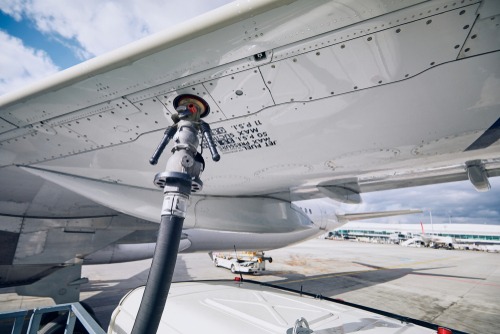
Airlines for America (A4A) announced Thursday that its member carriers pledge to work with government leaders and other stakeholders to make 3 billion gallons of sustainable aviation fuel (SAF) available to U.S. aircraft operators in 2030.
The announcement is part of a continuing commitment to work across the aviation industry to achieve net zero carbon emissions by 2050. A4A members had previously pledged to work toward rapid production and deployment of 2 billion gallons of SAF by 2030.
“We are proud of our record on climate change, but we know the climate change challenge has only continued to intensify. Accordingly, A4A member carriers have embraced the need to take even bolder, more significant steps to address the climate crisis,” A4A President and CEO Nicholas E. Calio said at a White House roundtable on sustainable aviation. “Today, I am pleased to announce that we are increasing our SAF ‘challenge goal’ by an additional 50 percent.”
However, in order for the aviation industry to achieve its 2030 SAF goal and 2050 net zero emission goal, positive government policy support is necessary, Calio said, including a $1.50-$2.00 per gallon SAF blender’s tax credit; public-private SAF research, development and deployment programs; and other collaborative initiatives.
“To get there, we must work together — industry and government,” he said. “These goals are important, but they are meaningless without action. A4A and our members are taking and are committed to action, and we are committed to working together, across this industry and with Congress and the Administration, to make these goals a reality.”
Prior to the COVID-19 crisis, U.S. passenger and cargo carriers were investing in increasingly fuel-efficient aircraft and operating in more efficient ways in order to save over 5 billion metric tons of carbon dioxide as it transported 2.5 million passengers and 58,000 tons of cargo per day. A4A and its members helped launch the SAF industry and committed to Carbon Offsetting and Reduction Scheme for International Aviation to facilitate carbon-neutral growth in 2020.